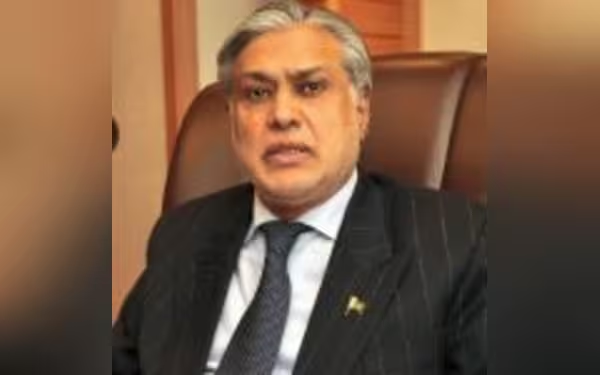Sunday, October 6, 2024 12:25 AM
Ishaq Dar Pushes for 35% Gas Allocation to Private Sector in Pakistan
- Ishaq Dar leads task force on gas allocation issues.
- Petroleum Minister Malik's absence delays crucial decisions.
- 35% gas allocation aims to attract foreign investment.
 Image Credits: pakistantoday
Image Credits: pakistantodayIshaq Dar's push for 35% gas allocation to the private sector faces delays due to Petroleum Minister Malik's absence, impacting foreign investment.
In recent developments concerning Pakistan's energy sector, a significant decision by the Council of Common Interests (CCI) has been stalled due to the absence of key officials. The CCI had previously decided that 35% of any future natural gas discoveries in Pakistan would be allocated to the private sector. This move is part of the government's broader strategy to attract foreign investment and improve the economy by selling natural resources, mining, and agriculture. However, the implementation of this decision has faced hurdles, primarily due to the repeated absences of Petroleum Minister Musadik Malik from crucial meetings.
Deputy Prime Minister Ishaq Dar leads a 20-member Task Force on Gas-related Issues, which has convened four times since the CCI's decision. Unfortunately, Minister Malik attended only the first two meetings, causing frustration among task force members. The absence of the petroleum minister has delayed discussions on enforcing the CCI's directive, which mandates that the gas from future discoveries be auctioned to the private sector through competitive bidding.
Sources indicate that the delay is not merely a matter of scheduling conflicts. There appears to be a disconnect between Deputy Prime Minister Dar and Minister Malik regarding the allocation of gas to the private sector. While Dar is pushing for swift action to implement the CCI's decision, Malik has expressed reservations, suggesting that the matter requires further reconsideration by the CCI. This disagreement has led to speculation that Malik may be employing delaying tactics to prevent a final decision.
When questioned about his absence, Minister Malik stated that he was engaged in prior commitments, including participation in the Russian Energy Week in Moscow. He emphasized that he is not opposed to the policy and that his ministry is actively working on a framework to implement the CCI's decision. However, the lack of progress has raised concerns among task force members, who view the enforcement of this decision as crucial for attracting significant investment in the energy sector.
In the absence of Minister Malik, the task force has continued to address other pressing issues within the energy sector, such as high-speed diesel imports and the allocation of gas to the Fauji Fertilizer plant. Yet, the unresolved issue of the 35% gas allocation looms large over these discussions. Deputy Prime Minister Dar has expressed frustration over the delays and has called for immediate action to enforce the CCI's decision. He has urged the committee to reach a unanimous conclusion on the allocation of gas from future discoveries to the private sector.
As the task force prepares for another meeting next week, the pressure mounts to resolve the internal disagreements that have hindered progress. The outcome of these discussions could have significant implications for Pakistan's energy sector and overall economy. The allocation of natural gas to the private sector is not just a policy decision; it represents a potential turning point for attracting foreign investment and revitalizing the economy. The coming days will be crucial in determining whether the task force can overcome its challenges and implement a decision that could prove vital for the future of Pakistan's energy landscape.













